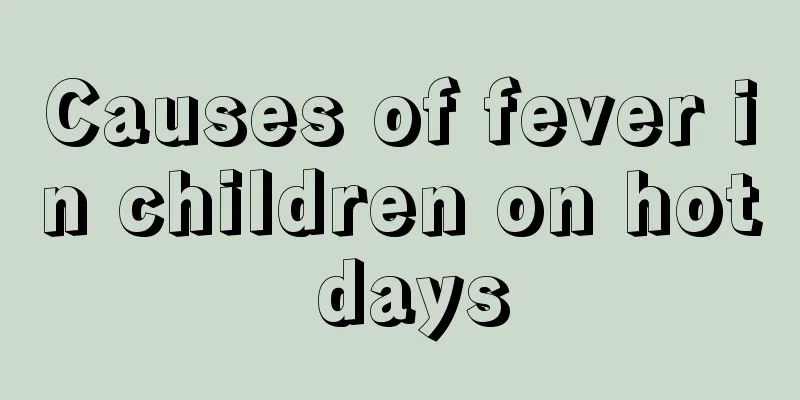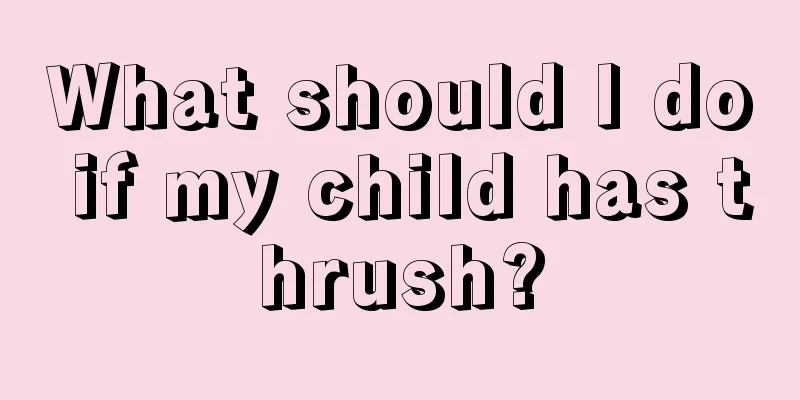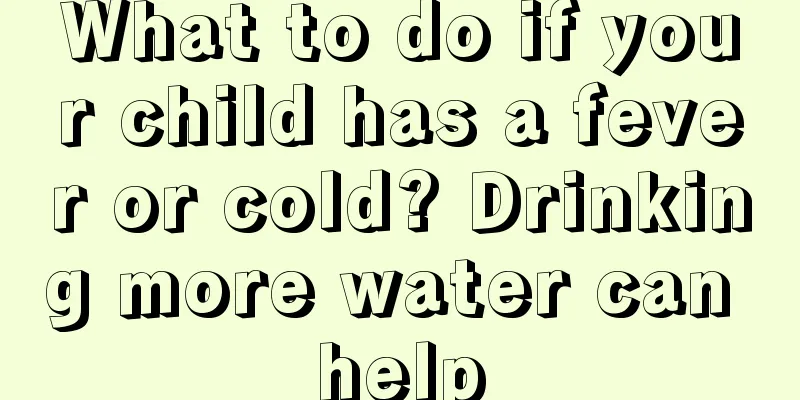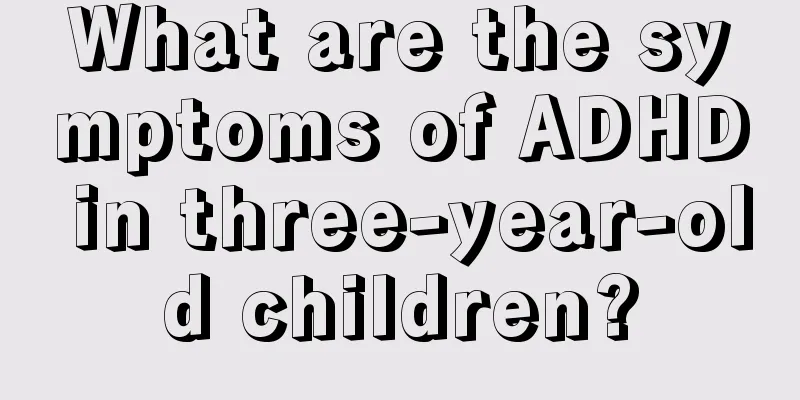Causes of fever in children on hot days

|
Although the scenery in summer is beautiful, it is also a season with the highest incidence of diseases. Most diseases are caused by heat. Children often have fever in summer. One type of fever is heat stroke, and the other is air-conditioning disease. The main symptoms are redness and heat of the baby's face, constant crying, vomiting and diarrhea, fever, excessive sweating, and in severe cases, convulsions and other symptoms. Let us take a closer look at the situation below. 1. Causes of summer heat syndrome Heat syndrome is also known as summer fever. The onset of the disease usually begins in the hot summer, and mostly occurs in children under 5 years old, especially in infants between 6 months and 2 years old. 2. Typical symptoms The main symptoms of heatstroke are flushed face, burning skin, palpitations, chest tightness, increased body temperature, profuse sweating, and rapid pulse. Severe heatstroke also includes symptoms such as coma, convulsions, high fever, and shock. 3. Questioning and identification Fever is the most common symptom. The duration of fever caused by heat stroke is generally very long, often about 1-3 months. The main symptom is high fever, with most children having temperatures between 38 and 40 degrees Celsius and the fever persists. The hotter the climate, the higher the body temperature. If the fever lasts too long, the patient may also experience symptoms such as pale complexion, weight loss, irritability, and frequent crying. 4. Treatment The treatment and care of high fever are especially important for babies with summer heat syndrome. Parents should follow the following steps: a. Remember to drink plenty of water. Depending on the condition of the patient, nutritious and easily digestible liquid or semi-liquid food should be given as appropriate to replenish the water lost due to fever and facilitate the excretion of toxins. b. The room temperature should be adjusted to around 26°C, and the child should wear fewer clothes or cover with fewer blankets to ensure that the child is in a cool and ventilated environment. c. The child's activities should be reduced as much as possible and he should rest in bed more often, because when he has a fever, his metabolism speeds up, he consumes more, eats less, and his constitution becomes weak. d. Educate children to avoid extremely hot periods when engaging in outdoor activities and to take preventive measures such as sun protection and cooling down. In addition, when there are symptoms of high fever, your baby can be given safe and effective infant antipyretic drugs. For example, Motrin Ibuprofen Suspension Drops are suitable for infants and young children aged 0.5 to 3 years old. 2. Air-conditioning disease 1. Causes Children's skin is thin and tender, with little subcutaneous fat, abundant capillaries, and their body temperature regulation center has not yet fully developed. If the air conditioner is used improperly, the baby will be attacked by cold air, the capillaries will contract, the pores will close, and the heat in the body cannot be dissipated, which can easily cause the body temperature regulation center and the blood circulation center to lose balance, causing colds, fevers and other symptoms. This is air-conditioning disease. 2. Typical symptoms Fever is the most common symptom of air-conditioning disease. When a child has a severe fever, the fever may not subside and he or she may even have a febrile convulsion. 3. Principles of handling When the home is far from the hospital and transportation is inconvenient, the baby's temperature may continue to rise during the journey or while waiting in a busy emergency room. In this case, parents should not panic too much, and can do the following emergency treatment at home: a. When a child has a fever, he or she should take safe and effective antipyretic drugs in time, such as Tylenol or Motrin. b. In addition, you can let your child drink more boiled water, salt water and fruits, especially watermelon, which can not only replenish water, sugar and vitamins, but also have the effect of clearing away heat. Precautions c. If you follow the following principles when using air conditioning in summer, you can avoid air-conditioning disease. 1. Pay attention to keeping your baby warm: measure your baby's temperature at least once a day. When entering or leaving an air-conditioned room, you should always add or remove clothes for your baby. When sleeping at night, cover your baby with a thin blanket or towel, especially covering the lower belly tightly. 2. Keep the air circulating and the temperature appropriate: Pay attention to keeping the air circulating in the room. Ventilate the room regularly, at least once in the morning and evening, for 10 to 20 minutes each time. Do not point the cold air outlet of the air conditioner directly at the baby. Do not set the air conditioner too low, 26℃ is appropriate; the temperature difference between indoor and outdoor should not be too large, it is best if the indoor temperature is 3℃ to 5℃ lower than the outdoor temperature. 3. Appropriate outdoor activities: Do not let your baby stay in an air-conditioned room all day. It is best to take your child outdoors in the early morning and evening when the outdoor temperature is lower. This will allow your baby to breathe fresh air, sunbathe, and enhance the body's adaptability. |
<<: Children's nosebleeds in hot weather
>>: What’s going on with the red blood streaks on my child’s face?
Recommend
Why do children lose their appetite?
Nowadays, many children have similar conditions s...
What should I do if my two-year-old baby has teething pain?
Two-year-old babies are in the period of growing ...
What should babies eat for diarrhea? Diet therapy is the most important
The baby's physique is very weak, so if you d...
Normal temperature range for three-year-old children
In fact, when children are sick, the most common ...
How to treat birthmarks in children?
Birthmark is a very complex skin problem that can...
Why do children get meningitis?
When meningitis occurs in children, it is easy fo...
Precautions for children's tooth replacement
Tooth replacement is the process in which permane...
What should I do if my child has a cowardly character?
Personality is mostly determined by innate factor...
What should I do if my child keeps touching my penis?
The genitals are tissues that grow from birth. Ch...
How to make baby meat pie
Since the digestive ability of the baby's sto...
Three month old baby always bites his lips
Many parents are very distressed that their three...
What’s going on if my baby’s eyes are red and have eye mucus? Experts will tell you
If you find that your baby's eyes are red and...
Can a 2-year-old baby drink pure milk?
For newborn babies, nutrients mainly come from br...
What to do if your child has a fever at night
Young children's bodies are not fully develop...
How to prevent stuttering in children?
There are many aspects of children's growth t...









